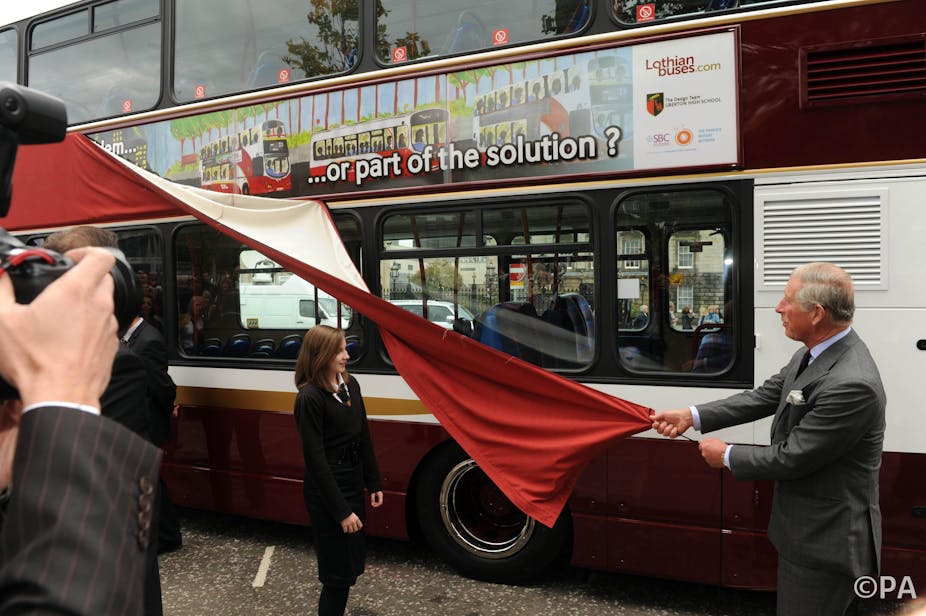In a new report, Working For The Few, Oxfam warns that the fight against poverty cannot be won until wealth inequality has been tackled. The wealth of the richest 1% in the world amounts to $110 trillion – or 65 times as much as the poorest half of the world, says Oxfam, which fears this concentration of economic resources is threatening political stability and driving up social tensions.
The world’s richest 85 people, who could all fit on a double decker bus, own as much as the world’s poorest 3.5 billion. You couldn’t get a clearer picture of wealth inequality – except, perhaps, if that bus were to draw up outside James Turner Street, the deprived subject of Channel 4’s fly-on-the-wall documentary Benefits Street which is attracting huge attention, prompting protests and eliciting outrage from members of the public, MPs and charities.
The really divisive thing about the levels of wealth inequality portrayed by Benefits Street and our double-decker of plutocrats and oligarchs is that the bleak poverty tends to pit the very poorest people against each other, instead of the system that keeps them poor – or the people who live in almost unbelievable luxury while others struggle to make ends meet.
As Benefits Street so clearly illustrates, William Beveridge’s five giant evils – squalor, ignorance, want, idleness, and disease – are alive and well in England today. Overcrowded, poor-quality housing is occupied by human beings battling malnutrition as they try to live on incomes of £30-60 per week (or in some cases no income at all), while facing regular eviction threats. And those who find work more often than not have to ensure long hours and exploitation by gang masters.
There is also resilience and hope in the form of a strong community spirit, mutual help and support, the involvement of the local church, and the desire expressed by participants for a better future and for work. Yet Benefits Street downplayed these positives so as to add to the growing number of media representations of “poverty porn”, which portrays benefits recipients as “shirkers and scroungers”, wilfully languishing on benefits at the taxpayers’ expense.

Research regularly shows the difficulties faced by people on benefits, their fear of sanctions, the difficulties they face in getting work in an economy that does not provide enough jobs, and the health consequences of worklessness (in terms of diet, alcohol, tobacco and substance abuse but also mental health and eventually mortality).
Lack of work in our society underpins the problems demonstrated in Benefits Street, and research shows it is also the root cause of long-term issues such as health inequalities. Areas with higher employment rates have better health and longer life expectancy, better housing and schools, and more besides. The social determinants of health were demonstrated very clearly in Benefits Street: now it is time to do something about them.
We need to tackle the societal barriers first and then the individual ones, since policy has focused too much on the latter and too little on the former. We need a benefits system that does not penalise work, and which does not penalise those without work by sanctioning them: we cannot starve people into jobs that don’t exist. There are two-sides to “making work pay” – it cannot simply be about cutting benefits – we also need an economy that actually provides work with living wages, and proper regulation of employers and landlords. We need a system that works for people, not just profit.
We used to have this in Britain. Full employment was one of the central principles of the post-war consensus and the basis of Beveridge’s welfare state. Rents and landlords were properly regulated and there was a large, high-quality social housing stock. But the political elite has abandoned this since the 1980s, when unemployment was considered to be “a price worth paying” for lower inflation, council housing stock was sold off, the regulation of landlords was “relaxed” and employment rights were curtailed.
We need to remake this social commitment as responsibilities for work cut both ways. There has been too much focus on the responsibilities of individuals and too little on those of society. As a society we have the responsibility to provide work by creating and sustaining good-quality jobs and providing the training and support necessary to obtain them. We also have the responsibility to look after those who cannot work (for example, because of poor health). Only then will we make poverty history in the UK.

